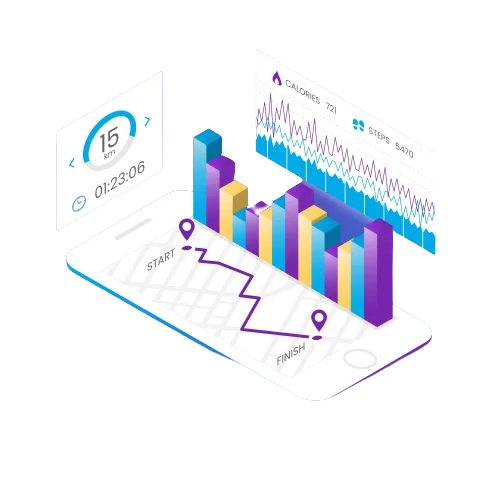Data Analytics in Digital Marketing is pivotal for success in today’s fast-paced digital age. It empowers marketers with insights into customer behavior, enabling informed decisions and impactful campaigns. From uncovering patterns to refining strategies, it propels marketing efforts to new heights, unlocking the key to success in the digital landscape.
Consumer Insights:
Harnessing data analytics offers a profound understanding of consumer behavior, preferences, and demographics. Through the examination of data sourced from website analytics, social media metrics, and customer surveys, businesses gain valuable insights into their target audience. Armed with this knowledge, marketers can customize campaigns, messaging, and offers with precision to actively engage and convert their desired customers.
Performance Measurement:
Leveraging data analytics empowers marketers to precisely gauge the effectiveness of their digital marketing endeavors. Essential performance indicators, including click-through rates, conversion rates, bounce rates, and return on investment (ROI), can be monitored and assessed. This data provides insights into successful strategies and areas requiring enhancement, facilitating informed, data-driven optimizations.
Campaign Optimization:
Through data analytics, marketers can identify trends and patterns in campaign performance. They can uncover which marketing channels, tactics, or creatives are delivering the best results. By optimizing campaigns based on data-driven insights, marketers can allocate budgets effectively, refine targeting strategies, and improve overall campaign efficiency.
Real-Time Monitoring:
Data analytics provides real-time monitoring capabilities, allowing marketers to track and react to campaign performance immediately. With access to up-to-date data, marketers can make timely adjustments, seize opportunities, and mitigate potential issues. Real-time monitoring enables agile decision-making and the ability to pivot strategies when necessary.
Personalization and Customer Segmentation:
Utilizing data analytics, businesses can categorize their audience according to demographics, behaviors, or purchase history. This segmentation facilitates the creation of personalized marketing campaigns tailored to specific customer groups. By delivering pertinent and focused messages to distinct audience segments, businesses can elevate customer engagement and improve conversion rates
Competitive Analysis:
Leveraging data analytics offers a glimpse into the digital marketing strategies and performance of competitors. Through tracking competitors’ online activities, marketers can pinpoint areas for gaining a competitive edge. This valuable information aids in benchmarking performance, recognizing industry trends and adjusting strategies accordingly.
Predictive Data Analytics:
Going beyond historical analysis, data analytics can predict future trends and outcomes. Through the application of predictive analytics techniques, marketers can anticipate customer behavior, campaign performance, and market trends. This predictive insight empowers businesses to proactively adapt strategies, allocate resources efficiently, and maintain a competitive edge.

Customer Journey Optimization:
Data analytics helps marketers understand the customer journey, from initial touchpoints to conversions and beyond. By analyzing customer interactions across multiple channels and touchpoints, businesses can identify areas of friction or drop-offs. This insight enables marketers to optimize the customer journey, improve user experience, and drive higher conversion rates.
Data-Driven Decision Making:
Empowering businesses, data analytics facilitates informed, data-driven decision-making, steering away from reliance on intuition or assumptions. Grounding decisions in robust data allows businesses to mitigate risks, enhance the efficacy of marketing campaigns, and allocate resources more efficiently. This approach to decision-making yields superior outcomes, maximizing return on investment.
Continuous Improvement:
Fostering a culture of ongoing enhancement in digital marketing, data analytics encourages regular analysis, hypothesis testing, and result measurement. Marketers can glean insights from both successes and failures through this iterative process. This approach enables businesses to fine-tune strategies, pinpoint opportunities for growth, and remain at the forefront of the ever-evolving digital marketing landscape.
In conclusion, data analytics is the cornerstone of success in today’s digital age, driving informed decisions, personalized strategies, and continuous improvement in digital marketing. It serves as the key to navigating the dynamic landscape, gaining profound insights into consumer behavior, optimizing campaigns, and ensuring real-time monitoring. Businesses that harness the power of data analytics unlock new heights of success, staying ahead of industry trends and thriving in the competitive online environment.




